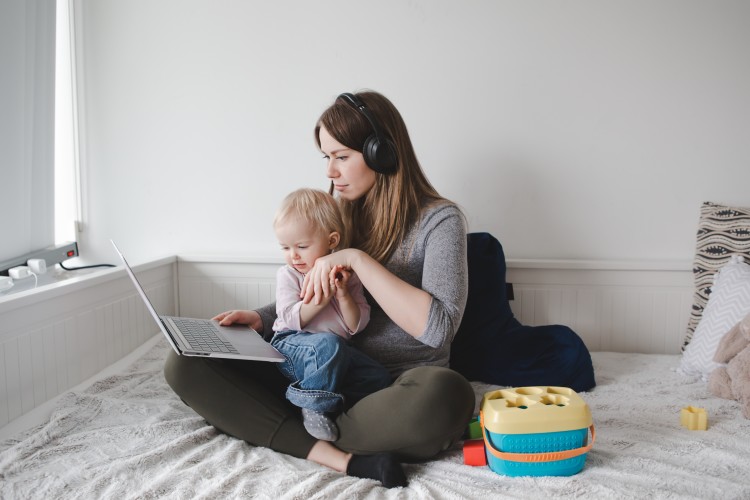Many women who are mothers or other unpaid carers have seen their responsibilities go way up during the pandemic.
It’s well known that as a group women lag behind men when it comes to a bunch of work-stuff, from average hours worked to seniority to the size of their monthly paycheck. There are all sorts of reasons for this, but most are grounded in a variety of traditional - and many would say sexist - cultural norms. One of these is that women are better suited than men to care and house work, including looking after sick relatives and raising children.
For many years, however, there’s been a steady trend away from this set up. Across the world, but particularly in Western countries, women have been making huge strides in the world of work. But it now looks like a large chunk of this progress could be undone. Many of the new policies put in place to combat coronavirus have had a disproportionate impact on women and their ability to maintain their current careers. One in four of American working women now say they are thinking about quitting or cutting their hours because of the impact the pandemic is having on their lives.
Part of the problem is that lockdowns and social distancing rules have eliminated or reduced most non-parent forms of childcare. Schools, nurseries, camps and after-school clubs have been shut or subject to repeated disruptions as everyone has to be sent home if anyone show symptoms. At the same time, restrictions on mingling or worries about infecting loved ones have prevented many parents from being able to rely on relatives or other babysitters. Many working parents have therefore been stuck trying to juggle 24/7 childcare with full-time jobs, and struggling.
Women would find it easier to stay in the workplace, some say, if companies gave them more flexibility and lowered expected work standards until the pandemic has passed. But workplaces aren’t always willing - or able - to help. Less work being done may mean less money being made, and considering many businesses are themselves struggling to survive the fallout from the pandemic, the costs may be too high for some to stomach.
This in turn will lead many working couples to conclude that rather than risking both their jobs, one of them should become a stay-at-home parent. Entrenched gender roles and the fact that men are more likely to be breadwinners mean that it will almost always end up being the mother who steps back from the world of work.
Read our explainer on: women and care work.

